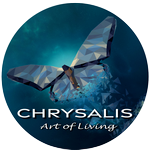Cocaine is a narcotic substance that acts on the central nervous system producing stimulating, euphoric and anesthetic effects.
It is an alkaloid which can be found in the leaves of a plant which mainly grows in South America and can be taken by inhalation, aspiration or injecting it intravenously.
MECHANISM OF ACTION
At the neurobiological level, the intake of cocaine blocks the reuptake of certain neurotransmitters (primarily dopamine and serotonin, norepinephrine in smaller quantities) in the synapse, preventing their reabsorption within the neuron. This results in an increase of these neurotransmitters in the brain due to an accumulation effect.
This accumulation is responsible for the psychoactive effects experienced by those who use it (euphoria, motor activation, exaltation, indefatigability).
IMMEDIATE EFFECTS
The effects sought are euphoria, excitement, exaltation, increased ability to concentrate, energy, well-being, sense of power and resistance to fatigue.
On a psychological level any increase of dopamine induces a state of focused attention, a longing for novelty and ability to cope with environmental events.
The user’s evaluation of this experience may then induce an addictive behavior: the more positive this evaluation’s subject will be, the higher will be the probability of this behavior becoming chronic.
LONG-TERM EFFECTS
Long-term users may develop tolerance that requires taking more and more of the substance to achieve the same effects. Long-term use can cause damage to the tissue separating the two nasal cavities (septum), resulting in the formation of sores (ulcerations) that may require surgery. Heavy use can impair mental functions, such as attention and memory. Chronic use can also damage the heart, causing scarring and thickening of the heart muscle and eventually causing heart failure. Cocaine can contain many additives, adulterants and contaminants, which, when injected, can cause complications, such as infections.
In women who use cocaine during pregnancy, the fetus is more likely to develop problems that lead to miscarriage.

RISKS
- Addiction: frequent and prolonged cocaine use creates mental and physical dependence. As soon as the using stops a range of withdrawal symptoms are experienced, including anxiety, depression, irritability, fatigue, insomnia, mood swings, and paranoia. This symptomatology may last weeks or even months, and even after most of them are gone, the addict feels the need to continue using.
- Overdose: when an excessive amount of cocaine is taken, the irregularity of the heartbeat can lead to myocardial infarction, stroke, respiratory arrest, seizures.
- Side effects: tachycardia, excessive sweating, hypertension, tremors, headaches, anorexia, hyperthermia and insomnia are among the most frequent physical correlates. From a psychological point of view are experienced psychomotor agitation, anxiety, irritability, panic, paranoia, impaired judgment, hallucinations and manic states.
TREATMENT
To this date, there is no substitute medication (such as methadone or other opioids for heroin addiction) that can control cocaine withdrawal symptoms or craving. Withdrawal from use depends on the motivation of the addict, supported by acceptance of having an addiction problem. Motivational support to the addicted individual is fundamental and can be activated through an integrated network of specific addiction counseling, psychotherapy and pharmacotherapy. Attending self-help groups, such as Narcotics Anonymous, can be of great support in maintaining motivation and sobriety.
The most effective psychotherapeutic treatment has been found to be cognitive behavioral treatment.
One of the fundamental objectives of this approach is to make the subject aware of emotions and thoughts linked to the assumption of the substance, which helps the individual to understand the function that this substance has in his or her life and to develop more functional coping strategies.




